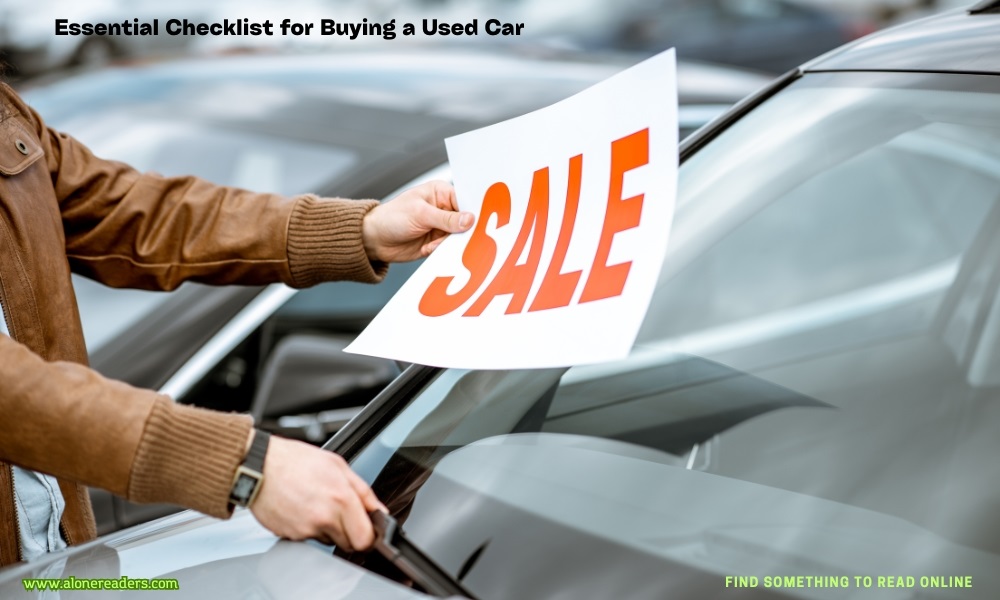
Purchasing a second-hand car can be a great way to save money while still obtaining a vehicle that meets your needs. However, it's crucial to approach this process with diligence to avoid common pitfalls and unexpected costs. Below is a comprehensive guide to help you evaluate a used car effectively before making a purchase.
Buying a used car involves more than just transferring ownership; it's about ensuring the vehicle is reliable, safe, and worth the investment. Unlike new cars, second-hand cars come with a history, and it's essential to understand that history thoroughly before proceeding with a purchase.
Before you start shopping, clearly define what you need from a car and how much you are willing to spend. Consider factors like the car’s size, fuel efficiency, performance, and the primary use of the vehicle (commuting, family use, adventure, etc.). Setting a budget also helps narrow down your options and can guide your decisions during the inspection process.
A car's history can tell you a lot about its current condition and potential future problems. Obtain the vehicle history report using the car’s VIN (Vehicle Identification Number) to check for any past accidents, service history, and previous ownership. This report can also inform you if the car has ever been declared as a salvage.
Walk around the car and check for any signs of damage such as dents, scratches, and rust. Make sure that the gaps between the panels are even, as uneven gaps often indicate poor repair work. Additionally, check the condition of the tires. Uneven wear on the tires can be a sign of alignment issues, which might indicate problems with the suspension or frame.
The interior of the car can provide insights into how well the vehicle has been maintained. Check the upholstery for tears, stains, and excessive wear. Test all electronic components like the air conditioning, radio, and power windows. Also, verify the condition of the dashboard indicators when you start the car—any warning lights should be properly addressed.
Electrical problems can be costly to fix. Ensure that all electrical components, including lights, turn signals, wipers, and the infotainment system, are functioning correctly. Don’t forget to check the air conditioning and heating system for proper operation.
Under the hood lies the heart of the car. Check for any signs of leaks, corrosion, or unusual noises. The engine should start smoothly without any hesitation or strange noises. Check the oil level and condition; if the oil is gritty or excessively dirty, it may indicate poor maintenance. Also, inspect the belts and hoses for wear and tear.
Whether the car has a manual or automatic transmission, the gears should shift smoothly without any grinding or thumping sounds. During a test drive, pay attention to how the transmission responds when you change gears. Any hesitation or jerking is a red flag.
A test drive is crucial to gauge the performance of the car. It can reveal issues with the engine, transmission, brakes, and alignment that may not be noticeable otherwise. Listen for any unusual engine noises, and check for smooth acceleration and braking. Make sure the car tracks straight and doesn’t pull to one side.
On your test drive, pay attention to how the car handles bumps and uneven roads. A car that bounces excessively or feels unstable may have worn-out shocks or other suspension issues.
Ask the seller for the car's service records to see how regularly the car was serviced. Frequent maintenance is a good sign and indicates that the previous owner took good care of the vehicle.
Even if you are comfortable with cars, getting a pre-purchase inspection by a professional mechanic can provide peace of mind. They can spot problems that you might miss and provide a detailed report on the car’s condition.
Armed with all the information from your checks and the mechanic’s inspection, you are in a strong position to negotiate the price. Don’t hesitate to ask for a lower price if there are issues that will require immediate attention.